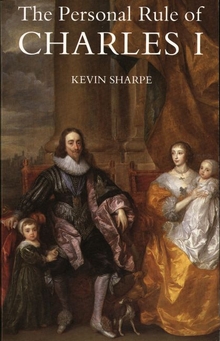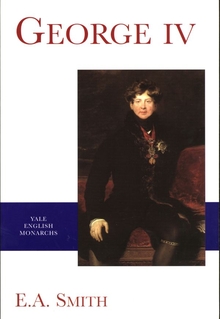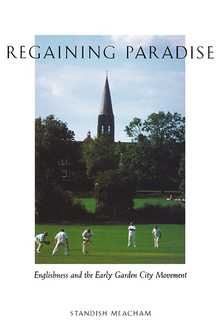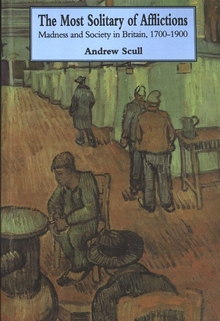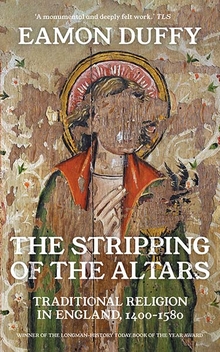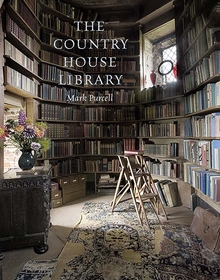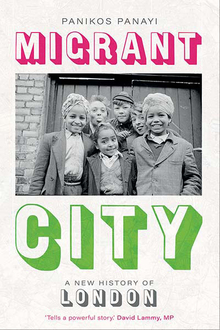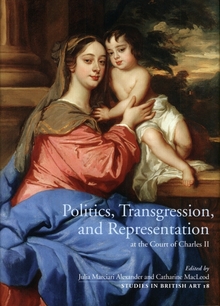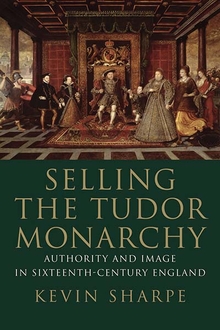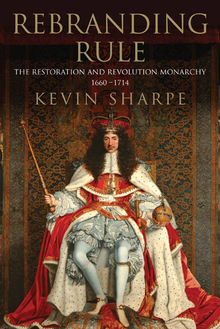The Personal Rule of Charles I
WARNING
You are viewing an older version of the Yalebooks website. Please visit out new website with more updated information and a better user experience: https://www.yalebooks.com
Kevin Sharpe
Sharpe presents an entirely fresh picture of Charles I and his annexation of power. He analyzes the personality, principles, and policies of a monarch who, after summoning more parliaments in his first year of rule than his predecessors had for a century, determined to govern without them. He assesses Charles' program of reform in central and local government and in church and state, and he discusses the years of peace and prosperity it engendered. He also examines priorities in foreign affairs and their impact on domestic policy. Sharpe subtly evaluates the degree of cooperation and opposition elicited and provoked by personal rule, and he analyzes the Scottish rebellion of 1637 that occasioned its undoing.
The book yields rich new insights into the history of the reign, politics and religion, foreign policy and finance, the court and the counties, and attitudes and ideas. It provides a substantial reevaluation of the character of the king, the importance of parliaments, and the process of government without them. And it represents a critical new perspective on the origins of the political struggle that ended on the battlefields of the English Civil War.
"A truly breathtaking and brilliantly sustained narrative based on a mind-boggling array of sources—an apt tribute to the nineteenth-century empirical tradition. . . . A well-written, exhaustive account of the personal rule . . . [and a] wonderfully provocative and evocative account of the period."—Andrew Foster, Parliamentary History
"It is a case of 'everything you've ever wanted to know about this period'. It is a monumental book discussing and re-evaluating Charles's character, his politics and religion, his foreign policy and finances and considers how government was possible (or not) with and without parliament. Essential reading."—Teaching History
"An important work of reference for many purposes. . . . A very considerable tour de force."—Patrick Collinson, The Observer
"Sharpe transforms not only our knowledge of the king, but also our understanding of a crucial phase in the development of the British monarchy. . . . A magnificent achievement: scholarly history on a grand scale, presented with stylishness and panache."—John Adamson, The Sunday Telegraph
"An impressive book which provides the most intensive scrutiny yet directed at those controversial years."—Ronald Butt, The Times (London )
"An impressive book which provides the most intensive scrutiny yet directed at these controversial years [1629-1640, when Charles I reigned without a parliament]. . . . Its discussion of the main characters and their motives in riveting. . . . Its evidence will remain an invaluable contribution to Stuart studies."—Ronald Butt, The Times (London)
"[A] monumental new work. . . . It contains an enormous amount of valuable information, on the working of the Council and the record of High Commission, on the impact of plague, and important arguments, most of all about foreign policy and its domestic reverberations."—Derek Hirst, Times Literary Supplement
"The book provides an excellent, panoramic account of England under the Personal Rule, with entertaining and illuminating examples of how the ideals of a king touched upon his subjects, as well as a revealing insight into how Charles' personal and political life were so inextricable linked, that it would inevitably lead to his downfall. It is a superb slice of history."—Mark Philipson, The Yorkshire Post
"Those who undertake studies of the 1630s in the future will have to take into account the qualitative and quantitative evidence that Sharpe has produced and his carefully argued challenges to previous scholarship. . . . Sharpe provokes us to reconsider the era of Charles I's personal rule."—Esther S. Cope, American Historical Review
"What a pleasure to read a learned book that challenges all the received ideas on its period in language that does not shut its readers out. . . . An arresting and original thesis, powerfully argued in trenchant, well-constructed sentences."—Richard Ollard, The Independent
"An impassioned and truly scholarly presentation of a dynamic monarch very much in control."—Peter Gwyn, Daily Telegraph
"Dr. Sharpe gives us the best account of Charles's personal rule that we are ever likely to get. He is most scrupulous and convincingly defends Charles and Laud against the lying propaganda of which the Puritans were such masters."—A. L. Rowse, The Evening Standard
"Impressively researched . . . well written, and deftly orchestrated, this is a book that well deserves the handsome treatment it has received from its publishers."—R.C. Richardson, Times Higher Education Supplement
"The largest and most wide-ranging analysis of the personal rule that has ever been written. . . . This is history on a bold and exciting scale, which seeks to cover all aspects of government in a way that few historians would now dare to attempt. . . . A treasure-trove of new and exciting material."—Anthony Milton, History Today
"[Sharpe] offers a more positive assessment, arguing that Charles was motivated not by absolutism or Arminianism, but by a desire to impose order and reform in government and religion while maintaining national security in the treacherous era of the Thirty Years War. . . . [A] provocative and valuable book."—Choice
Publication Date: September 10, 1996
41 b/w illus.

